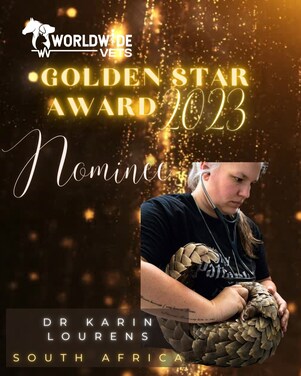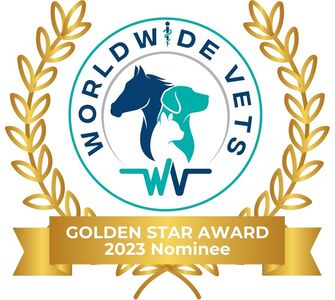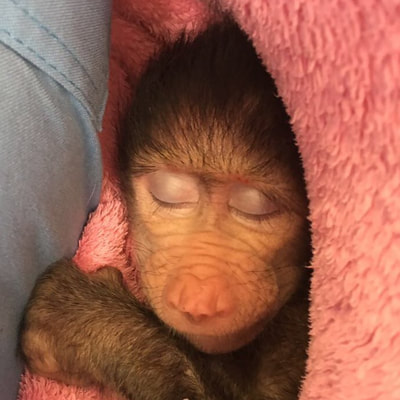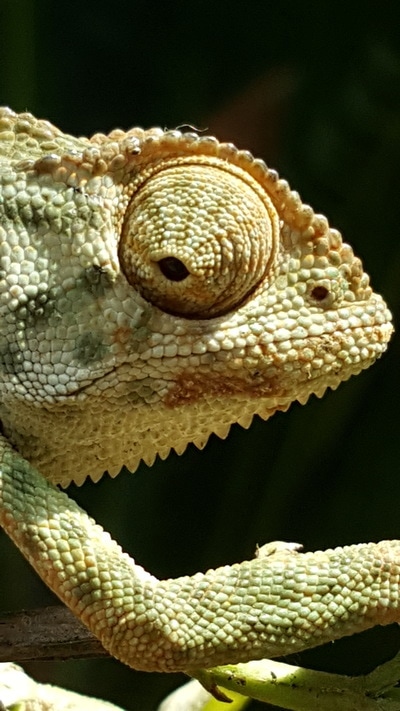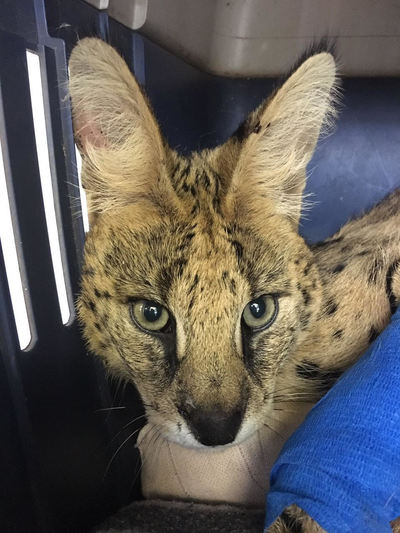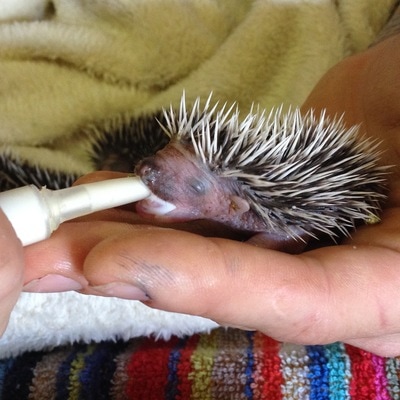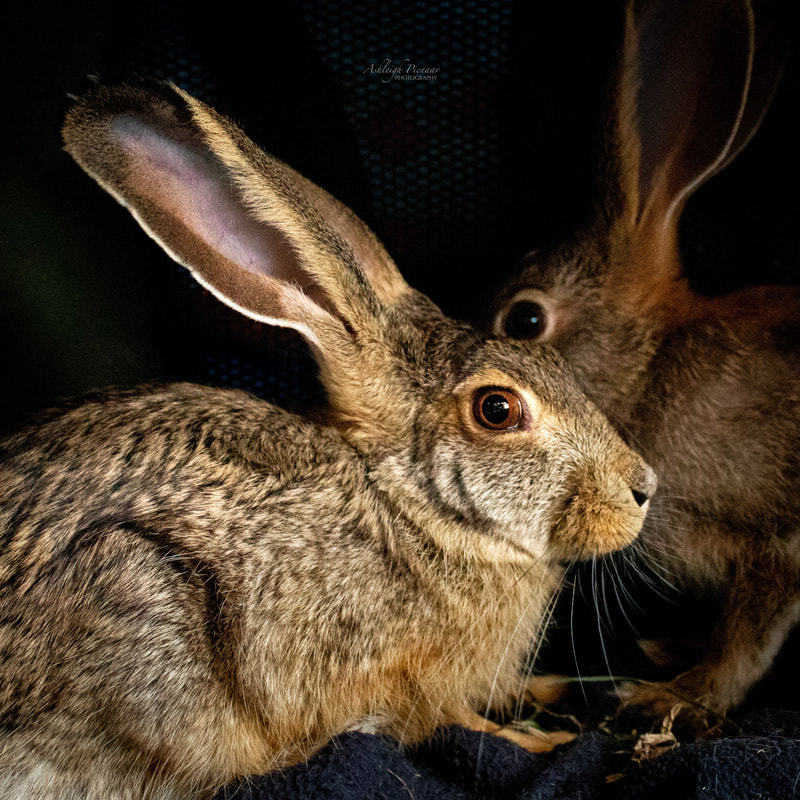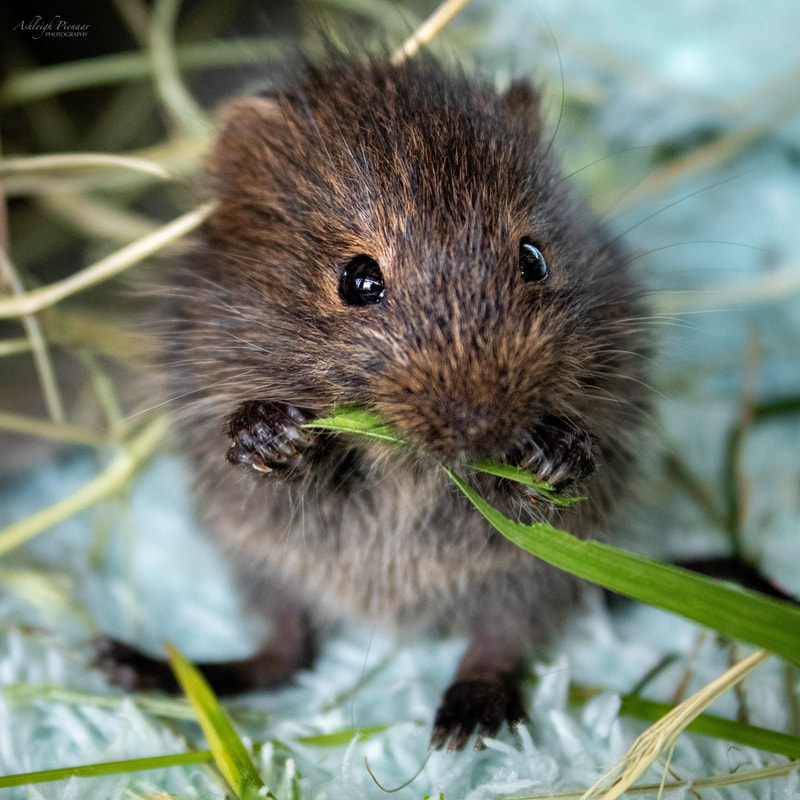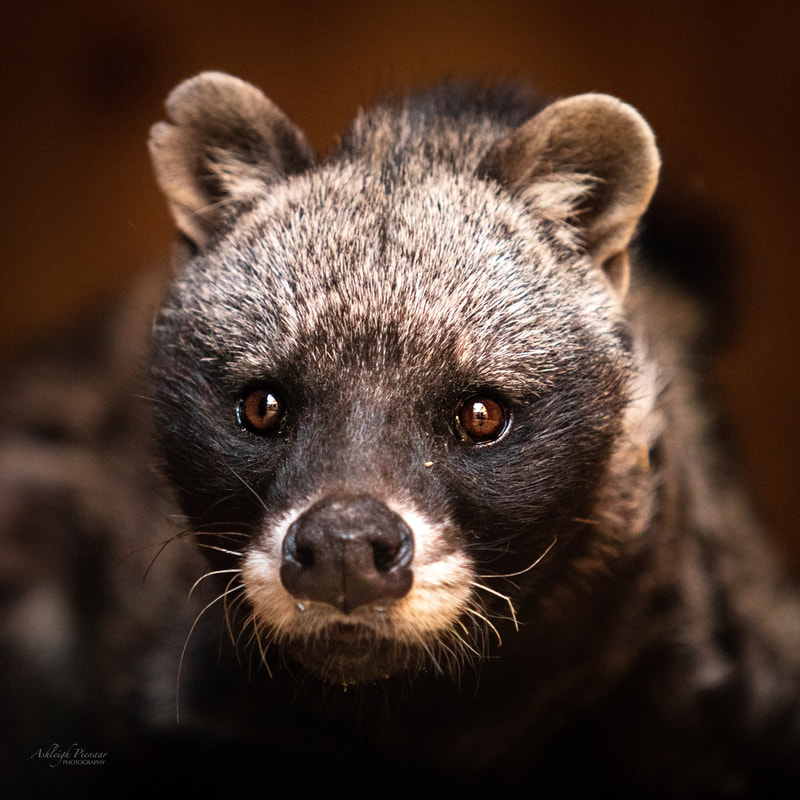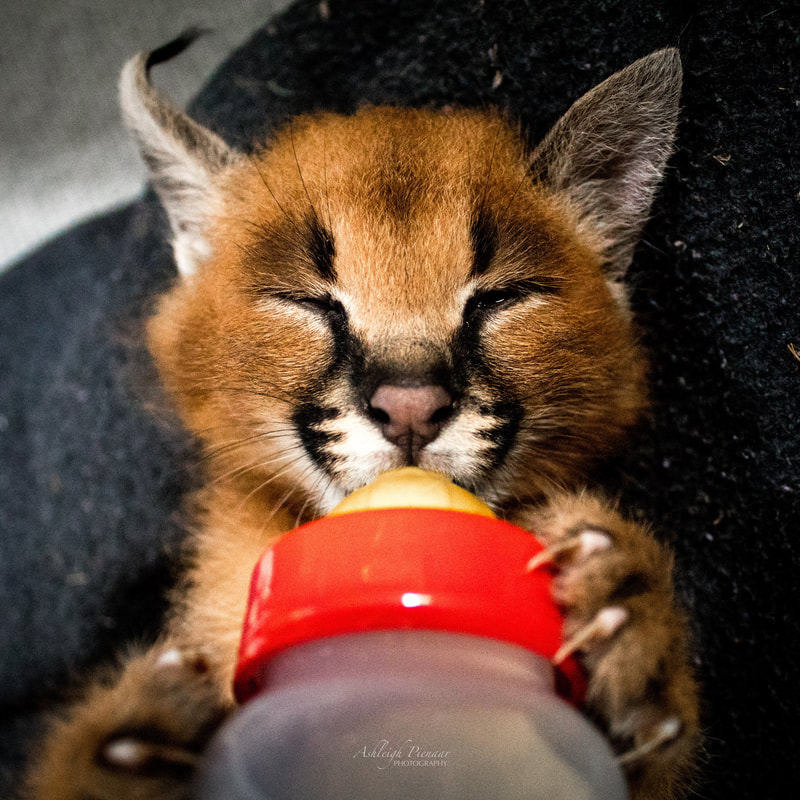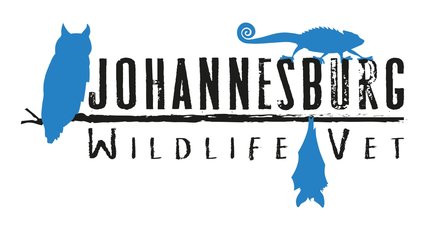More about The Joburg Veterinary Hospital NPC
Many people would question why we need another non-profit wildlife organisation. Our Wildlife NPC is a first of its kind. It funds a wildlife veterinary hospital that exclusively treats indigenous wildlife, free of charge. The biggest difference is that we treat medium and small wildlife – most of the current NPOs fund conservation efforts focus on large wildlife i.e. rhino, elephant and lion. Smaller indigenous wildlife is often overlooked. Our hospital treats, rehabilitates and releases these animals back into the wild.
Some of the species we treat include: bats, owls, raptors, mongoose, pangolin, meerkat, serval, genet, hedgehogs, bush babies, garden birds, water birds and otter – to name but a few. Often these injured/compromised animals are taken to the nearest veterinary practice for treatment. Most often the veterinarian on duty does not have the expertise or the time to treat a particular species and many times these animals get inadequate care (medical, diet and husbandry). Even our 24 hour veterinary facilities are not equipped to handle wildlife as this is not their speciality.
The few veterinarians that are able to treat wildlife do so almost always on a pro-bono basis, something that is not always viable in the current economy. We wanted a veterinary hospital that only treats wildlife – on a full time basis. All of the currently registered wildlife rehabilitation centres do not have a veterinarian on site. Our hospital has a dedicated veterinarian present on a full time basis. The rehabilitation part of the hospital is run and overseen by a wildlife rehabilitation specialist, and we regularly train final year veterinarian students as well as experienced veterinarians in our approach to the treatment and rehabilitation of indigenous wildlife.
Some of the species we treat include: bats, owls, raptors, mongoose, pangolin, meerkat, serval, genet, hedgehogs, bush babies, garden birds, water birds and otter – to name but a few. Often these injured/compromised animals are taken to the nearest veterinary practice for treatment. Most often the veterinarian on duty does not have the expertise or the time to treat a particular species and many times these animals get inadequate care (medical, diet and husbandry). Even our 24 hour veterinary facilities are not equipped to handle wildlife as this is not their speciality.
The few veterinarians that are able to treat wildlife do so almost always on a pro-bono basis, something that is not always viable in the current economy. We wanted a veterinary hospital that only treats wildlife – on a full time basis. All of the currently registered wildlife rehabilitation centres do not have a veterinarian on site. Our hospital has a dedicated veterinarian present on a full time basis. The rehabilitation part of the hospital is run and overseen by a wildlife rehabilitation specialist, and we regularly train final year veterinarian students as well as experienced veterinarians in our approach to the treatment and rehabilitation of indigenous wildlife.
Meet The DIRECTORS
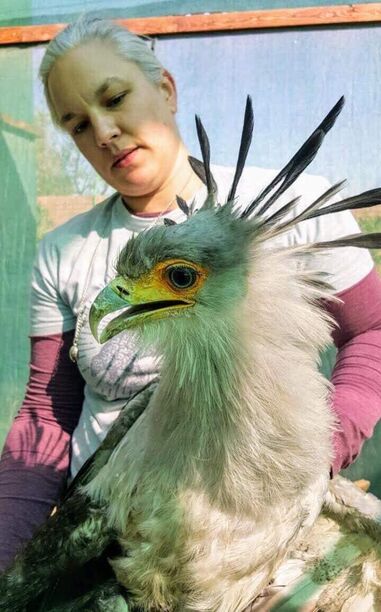
Dr Karin Lourens
Dr K is the co-founder and head veterinarian of the Johannesburg Wildlife Veterinary Hospital. She qualified in 2002 and started her veterinary career in small animal practice. She developed an interest in wildlife veterinary medicine in 2010, especially wildlife rehabilitation of small and medium South-African species. In 2017 she opened a veterinary hospital and combined it with a wildlife rehabilitation center - making it the only one of its kind in South-Africa. The goal of this facility is the treatment, rehabilitation and release of wild animals back into the wild. One of the species the hospital specializes in is the Temminck’s pangolin. She has gained extensive experience in treating and rehabilitating this species and completed her master’s degree in February 2020 (cum laude) on the normal reference intervals for clinical chemistry and haematology in Temminck’s pangolin - this work has since been published in Frontiers of Veterinary Science. Dr K is co-author of Chapter 29 - ‘Veterinary Health of Pangolins’ in the book ‘Pangolins- Science, Society and Conservation’ published by the IUCN and she is a member of the IUCN SSC Pangolin Specialist Group. Dr K is currently the most experienced veterinarian, worldwide, treating this species of pangolin. She is passionate about conservation and has worked with more than 300 indigenous species of birds, mammals and reptiles. She is working towards opening a teaching facility for veterinary students and nurses interested in treating and rehabilitating small and medium South-African wildlife.
Dr K is the co-founder and head veterinarian of the Johannesburg Wildlife Veterinary Hospital. She qualified in 2002 and started her veterinary career in small animal practice. She developed an interest in wildlife veterinary medicine in 2010, especially wildlife rehabilitation of small and medium South-African species. In 2017 she opened a veterinary hospital and combined it with a wildlife rehabilitation center - making it the only one of its kind in South-Africa. The goal of this facility is the treatment, rehabilitation and release of wild animals back into the wild. One of the species the hospital specializes in is the Temminck’s pangolin. She has gained extensive experience in treating and rehabilitating this species and completed her master’s degree in February 2020 (cum laude) on the normal reference intervals for clinical chemistry and haematology in Temminck’s pangolin - this work has since been published in Frontiers of Veterinary Science. Dr K is co-author of Chapter 29 - ‘Veterinary Health of Pangolins’ in the book ‘Pangolins- Science, Society and Conservation’ published by the IUCN and she is a member of the IUCN SSC Pangolin Specialist Group. Dr K is currently the most experienced veterinarian, worldwide, treating this species of pangolin. She is passionate about conservation and has worked with more than 300 indigenous species of birds, mammals and reptiles. She is working towards opening a teaching facility for veterinary students and nurses interested in treating and rehabilitating small and medium South-African wildlife.
|
We are thrilled with news from the esteemed Worldwide Vets organisation: Dr Karin Lourens made us proud with her Golden Star Award nomination. Amongst other vets from all parts of the world, her efforts to save and rehabilitate wildlife are raising the bar and making a difference in the lives of animals.
Conservation is not just an act of love for animals but a critical part of saving the natural world for future generations. Big and small animals are important, but Dr K has a passion for smaller and sometimes unique species. She has gathered admiration for her work, especially the rare and enigmatic pangolins, and is generating awareness for the veterinary community with her following and advocacy of wildlife. Together with other Star Award nominees and winners, the spotlight is on the efforts and sometimes unseen bravery that contributes to keeping our beautiful natural animal kingdom free from extinction and full of happy animals in their wild habitat. “The secret world of smaller wild creatures is often overlooked while people champion larger, more enigmatic animals like elephants and rhinos. I wanted to highlight the importance of saving animals like, e.g. snakes, bats, owls, serval, and one of my favourite animals, the pangolin, to name but a few.” - Dr Karin Lourens |
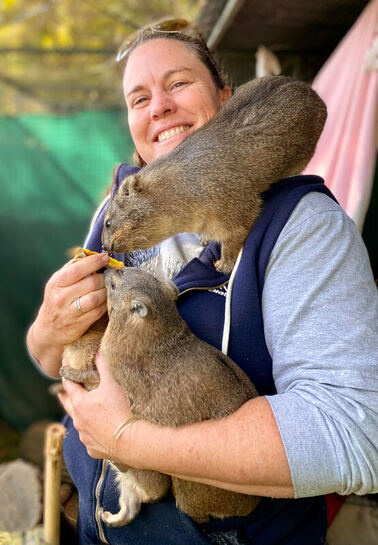
Wendy Willson
After finishing University Wendy’s passion for fighting animal crime has seen her in the ranks of the South African Police Force, in the field of conservation and as the founder and manager of the NSPCA Special Investigations Unit, which focused primarily on detection, interception and prosecution of premeditated acts of animal cruelty and organised criminal activities such as Dog Fighting. Wendy has had the opportunity to be involved in animal conservation and crime prevention in many different countries and has spoken on multiple national and international platforms on subjects such as prosecution of animal crime, the human/animal crime interface, violence against humans and animals, and animal welfare. Wendy was the 2018 recipient of the Woman in Law Enforcement Award of Heroism for her dedication and acts of bravery in the combating of violent animal crime.
Wendy joined the Johannesburg Wildlife Veterinary Hospital in 2022 as their operations and legal lead. She has many years’ experience in managing wildlife in a captive setting and brings with her a wealth of knowledge, with a special interest in the nutrition of African species. She also heads up JWVH’s recent undertaking to pursue legal recourse for all the under represented wild animal species who had been victims of crime. She has already achieved remarkable results in court to ensure that the risk of engaging in illegal activities and premeditated cruelty (with these species) outweighs the reward.
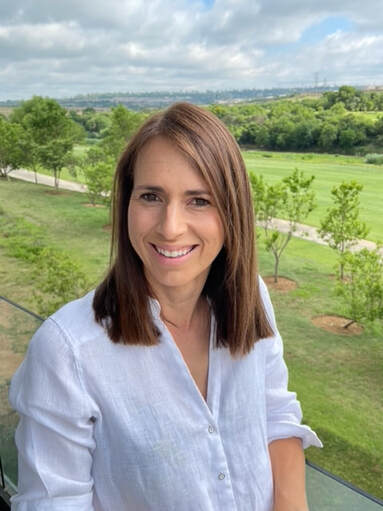
Elna Pretorius
In 2008 Elna co-founded Columinate, the first digital market research agency in South Africa. In 2018, the company was acquired by Human8 and at the time of sale, the company was one of the biggest market research companies in the country, employing over 50 people. A research psychologist by training, Elna is highly skilled in managing client relationships, sales, marketing, branding and people. She is also passionate about PR, people development and enjoys developing strategies for companies. “Retired” at age 34 and with a list of accolades and awards in the bag, Elna lends her skills part-time to select NPOs. She served on the Gauteng EXCO board for Reach for a Dream and delivered their 2023 strategy pro bono. As the latest director of Johannesburg Wildlife Veterinary Hospital she hopes to lend her business expertise to the Hospital to facilitate growth and expansion for the ambitious team. She also hopes she will one day be able to spell “veterinary” without using her spell checker.
In 2008 Elna co-founded Columinate, the first digital market research agency in South Africa. In 2018, the company was acquired by Human8 and at the time of sale, the company was one of the biggest market research companies in the country, employing over 50 people. A research psychologist by training, Elna is highly skilled in managing client relationships, sales, marketing, branding and people. She is also passionate about PR, people development and enjoys developing strategies for companies. “Retired” at age 34 and with a list of accolades and awards in the bag, Elna lends her skills part-time to select NPOs. She served on the Gauteng EXCO board for Reach for a Dream and delivered their 2023 strategy pro bono. As the latest director of Johannesburg Wildlife Veterinary Hospital she hopes to lend her business expertise to the Hospital to facilitate growth and expansion for the ambitious team. She also hopes she will one day be able to spell “veterinary” without using her spell checker.
All treatment of wildlife is free of charge and we rely solely on the support of our community and corporate sponsors.
PLEASE SUPPORT US AND HELP US KEEP WILDLIFE WILD!
PLEASE SUPPORT US AND HELP US KEEP WILDLIFE WILD!

